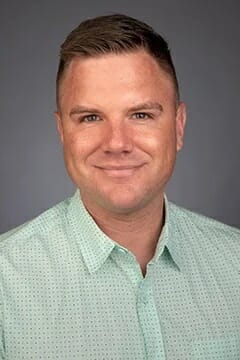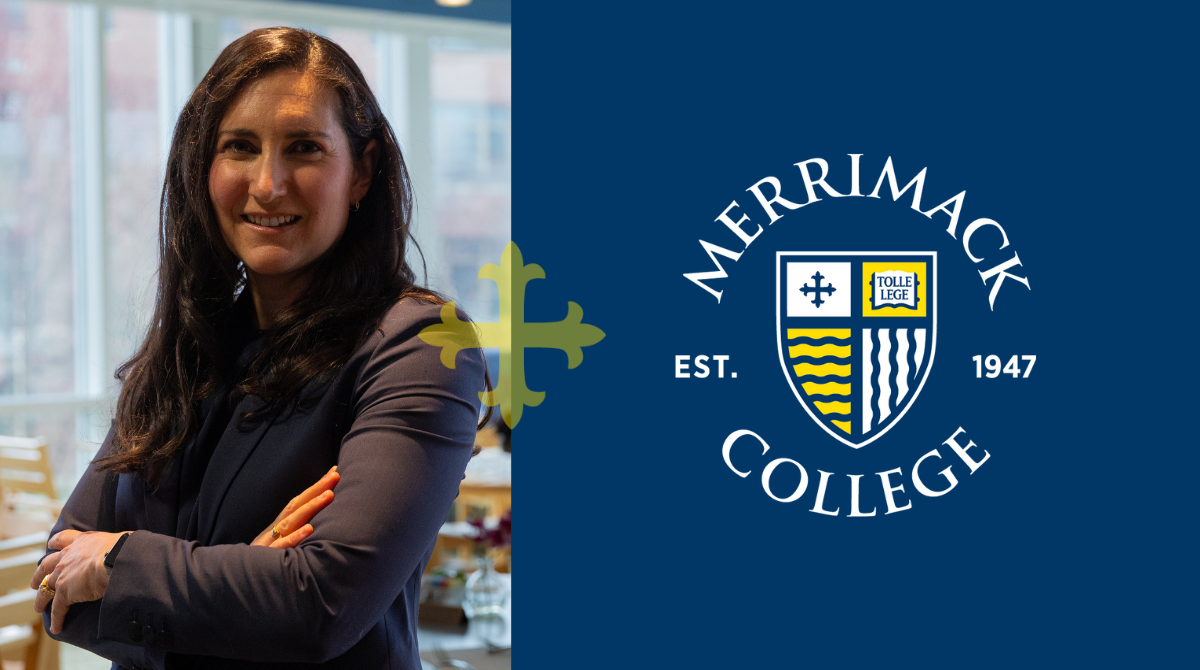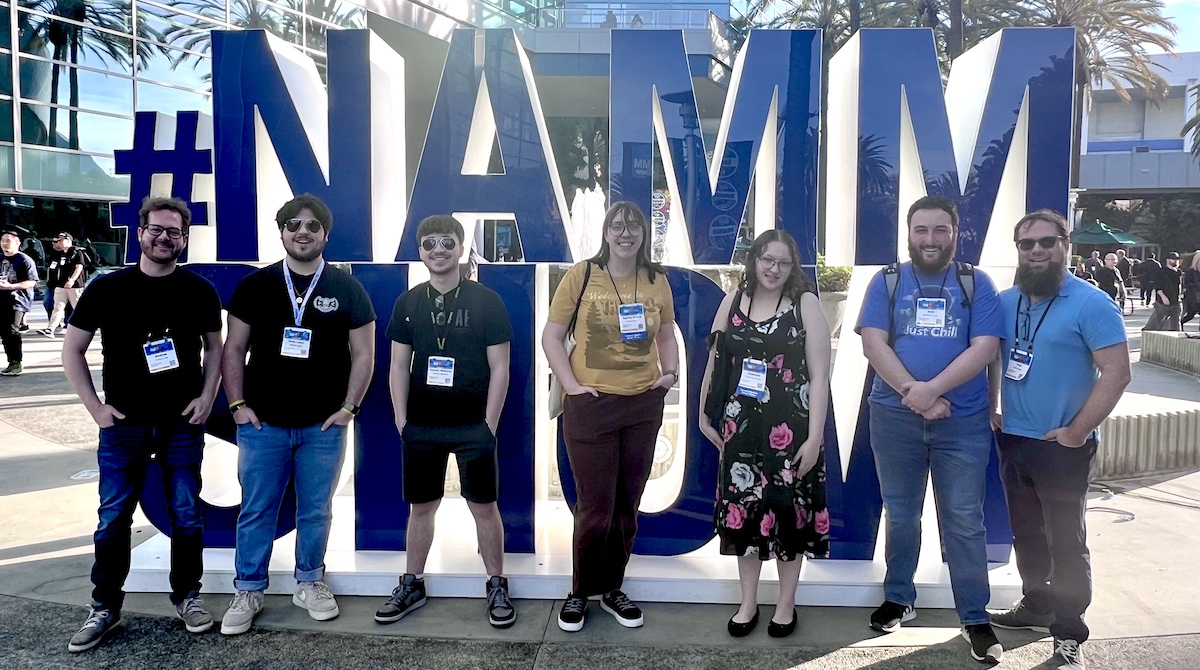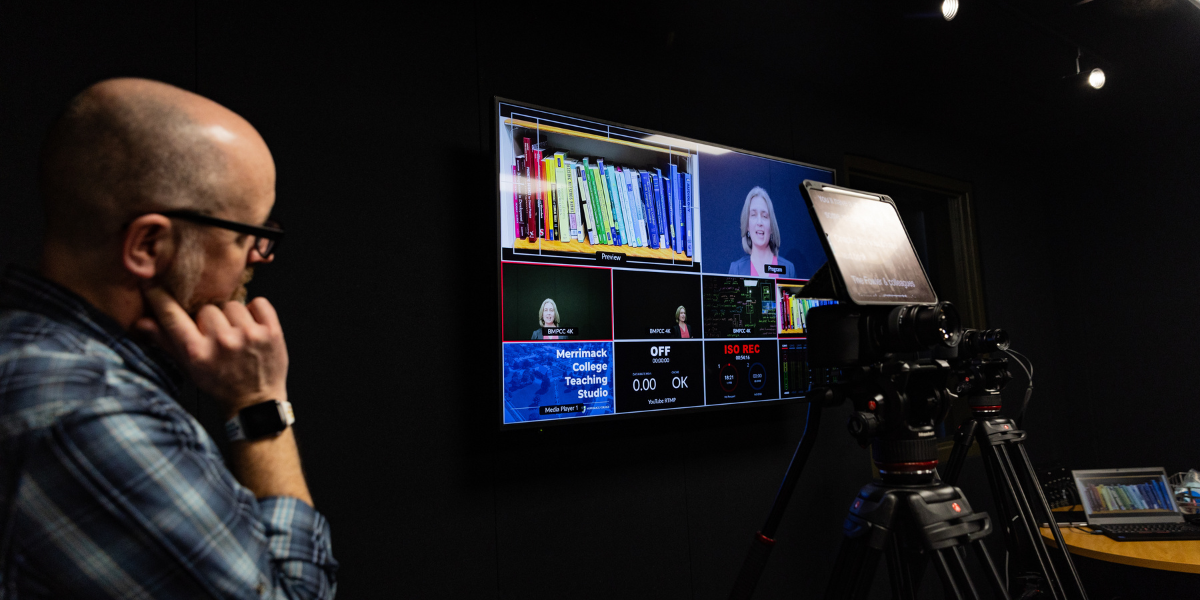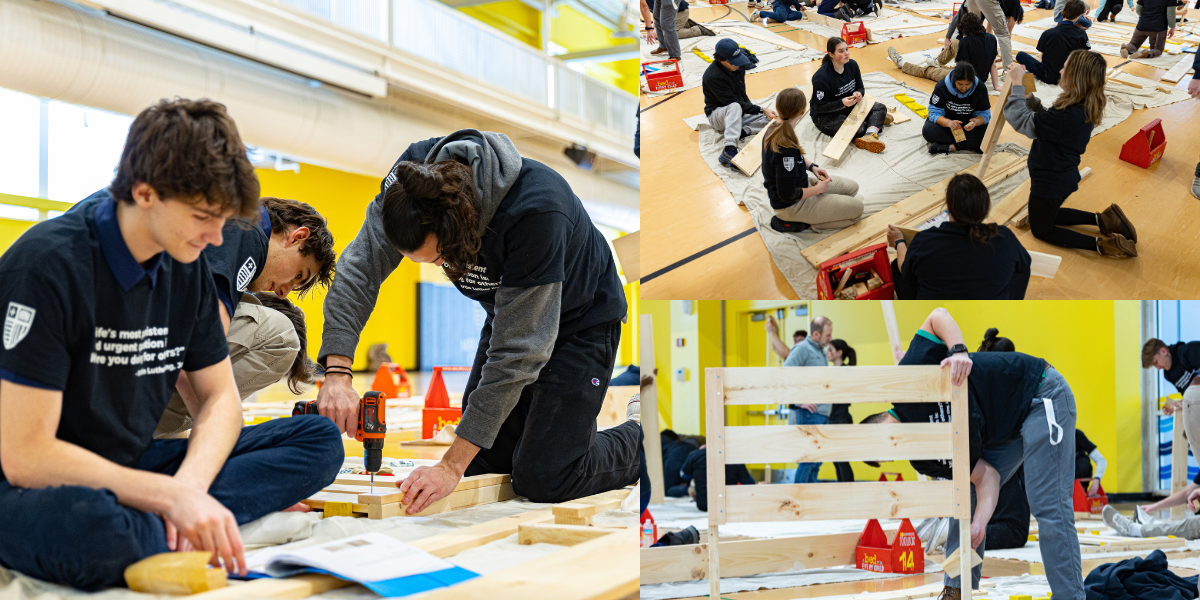Over his career in nursing and academia, Mark Adelung’s experiences have varied. The scope of health care environments he has worked in include hospitals, assisted care facilities, COVID-19 field hospitals, a prison, a wellness gym and a school.
But the common thread across all of his work and research is a passion for giving back to marginalized communities. He believes strongly in focusing on the greatest good that will help the most people. And if you ask Adelung, who joined Merrimack College as an associate clinical professor in nursing this fall, where his passion lies he will quickly tell you, “community and public health.”
While pursuing a bachelor’s degree in public health, he became interested in epidemiology, health education and nursing. After graduating, he started his career in health administration at a continuing care retirement community. While there, a rotation with the health services department helped him identify his personal need to be more clinical and hands-on.
“After seeing the work nurses were doing there, I realized I’d be happier switching gears,” he explained. “Some of my family members are nurses, which was also inspiring.”
Among Adelung’s most fulfilling care experiences was three medical missions to Haiti through the Foundation for Peace, an organization that works directly with communities to meet the needs of people living there. The team Adelung was part of immersed itself in the community, attending church services and sharing meals in families’ homes, along with working eight-hour clinical days.
“We did clinics for general health and gave everyone vitamins and hygiene products with instructions,” said Adelung. “Most places in Haiti don’t have the greatest sanitation or access to clean water, and they burn a lot of their waste, so many of the health issues we came across were due to these issues. We saw a lot of skin infections and burns. But you should see the kids’ faces when you give them vitamins or a washcloth and soap. They’re so excited and appreciative.”
Now with much of his attention turned to the classroom, Adelung is educating future generations of nurses. He stresses to them the importance of being prepared when taking care of patients.
“I always tell students when they are with patients and receive their assignment, think about the worst-case scenario and be prepared for it,” Adelung said. “It’s always good to be over-prepared so that if something happens or goes wrong, you already have a plan on how you will react.”
